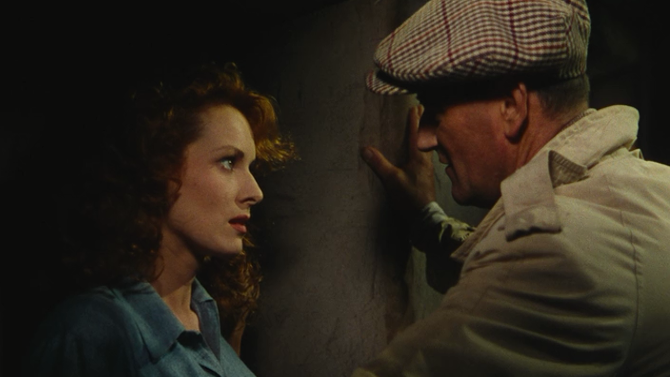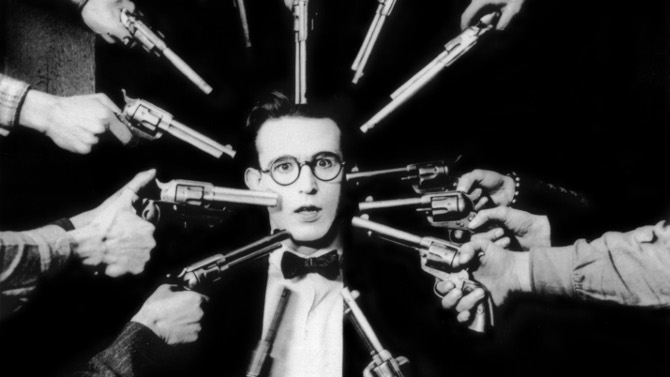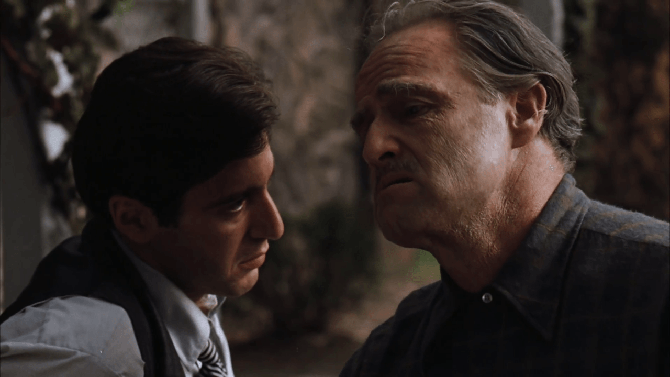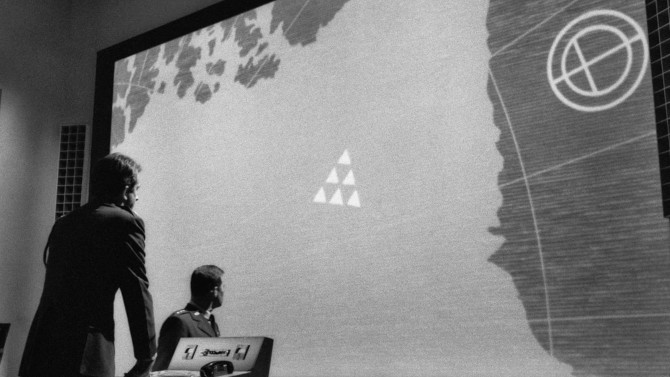
Safety First
Like a severe and utterly serious version of Stanley Kubrick’s 1964 satirical dark comedy Dr. Strangelove or: How I Learned to Stop Worrying and Love the Bomb, you would think that Fail Safe would have been the original release in theatres that was then later spoofed, yet that is not the case. Released approximately six months later in the same year, as you might imagine, it led to very poor returns at the box office – dare I say it (as the film deals with this subject matter)... it was a bomb! Despite that, over time, it has become a bonafide classic. Based upon Eugene Burdick’s 1962 novel of the same name and directed by Sidney Lumet (Dog Day Afternoon), he introduces us to our main players by way of little vignettes.
-
Star Pick with Gerry Cooney
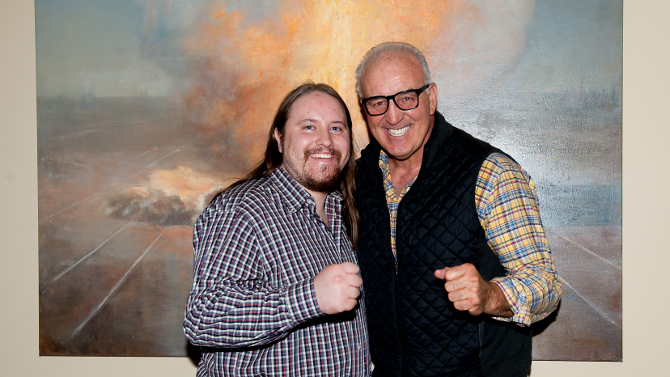 The Fighting IrishThe Quiet ManAugust 2, 2017
The Fighting IrishThe Quiet ManAugust 2, 2017I was fortunate enough to sit down with legendary heavyweight boxer Gerry Cooney not too long ago. One of the biggest punchers to ever grace the bright lights of the ring, his career spanned from 1977 to 1990, a final record of twenty-eight wins and only three losses (twenty-four of those victories came by way of knockout). A towering six feet, six inches, and with an impressive eighty-one inch reach, the offensive minded boxer dismantled two legends of the sport, Ron Lyle and Ken Norton – leading him to a match with the great Larry Holmes, a spectacular bout that went into the thirteenth round, ending with Cooney losing by TKO. After three more convincing wins, Cooney faced two more formidable foes, Michael Spinks and George Foreman, the latter bringing an end to his illustrious career.
-
Harold Lloyd Hones his “Glasses” Character
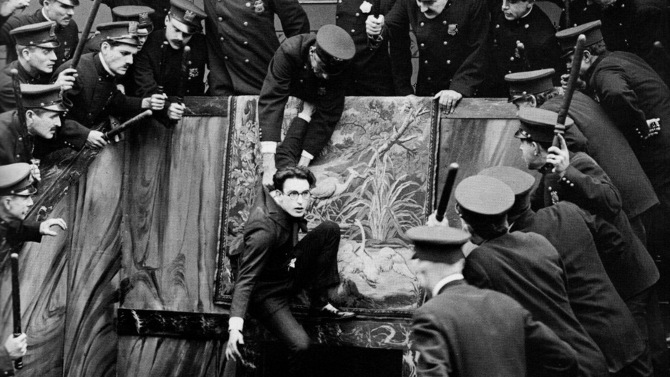 Bumping Into BroadwayAn Eastern WesternerJuly 14, 2017
Bumping Into BroadwayAn Eastern WesternerJuly 14, 2017An observation I am sure many of you have made over the years is the general stupidity (and lack of skill) the villains, police or any other nefarious enemy has had in the movies. With the James Bond films being a prime example, it shows the low standards the maniacal mastermind must have had when hiring his henchmen – they cannot shoot, drive or seemingly do anything else, stumbling over each other in the process. Also think of John Wick or any other motion picture made over the past multiple decades. Well, it was this thought that struck me as I sat watching two early silent shorts from the comedic great Harold Lloyd (placed alongside Charlie Chaplin and Buster Keaton as the top comics of the silent era). Starting with 1919's Bumping into Broadway, it was the first time the actor donned his now-famous “glasses” character, usually just referred to as The Boy. A two-reeler that lasts twenty-five minutes, it has The Boy getting into all kinds of hijinks.
-
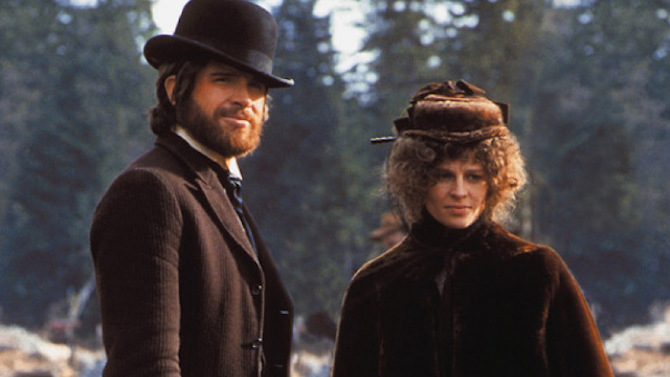
A Unique Take on the Traditional Western
McCabe & Mrs. MillerJuly 9, 2017We often think of the western as being set in the sunbaked, sand-filled deserts of the John Wayne and Clint Eastwood epics. Turning this idea on its head, Robert Altman takes us into the frontier lands of the wet and snowy northwest (filmed in and around Vancouver, Canada), an equally picturesque yet no less hostile terrain, in the 1971 film McCabe & Mrs. Miller. Riding into town with his bushy beard and no less hairy fur coat, John McCabe (Warren Beatty) is a businessman looking for his next big opportunity. He sees the tiny, half-built town of Presbyterian Church (just over one hundred people) not as a hindrance, but as the perfect location to set up a one stop saloon, gambling den and whorehouse. Hiring some local men, they get to work while he heads off to procure the working girls – purchasing some lower class ladies for the gruff, rough, and equally low class frontier men of the area.
-
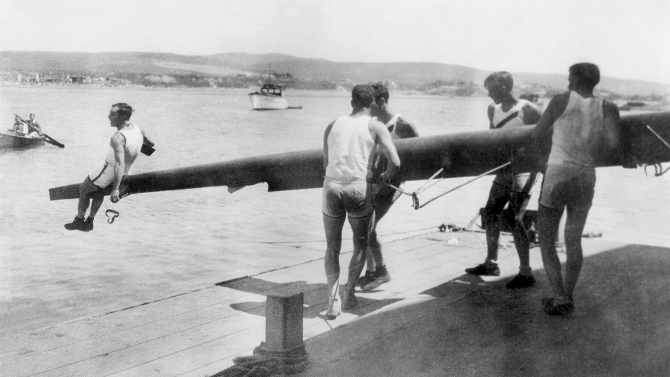
Getting on Track
CollegeJune 20, 2017Showing off his immense skills in a rather unusual way, Buster Keaton heads to College in this 1927 feature that followed up The General; a Civil War set picture that is now known as a classic (and often considered his masterpiece), its expansive story bloated the budget and somehow brought lackluster reviews, leading to a rare bust at the box office. So, his next film (the above mentioned College) was designed to be more commercially viable and Keaton was reeled in, forced to be under the thumb of co-director James W. Horne (who according to Keaton, did virtually nothing) as well as producer Harry Brand (publicity chief for Keaton’s usual producer Joseph Schenck – he had just become president of United Artists), the latter constantly scrutinized every penny Keaton spent, making sure he didn’t go over budget like with The General. Further annoying the funnyman, the producer made sure that he received a "Supervised by Harry Brand" credit on the film. Receiving another batch of ungracious reviews, it was Keaton’s second bomb in a row. Despite that, College, like The General, is considered by most today to be a classic (though more of a middling effort compared to some of his other motion pictures).
-
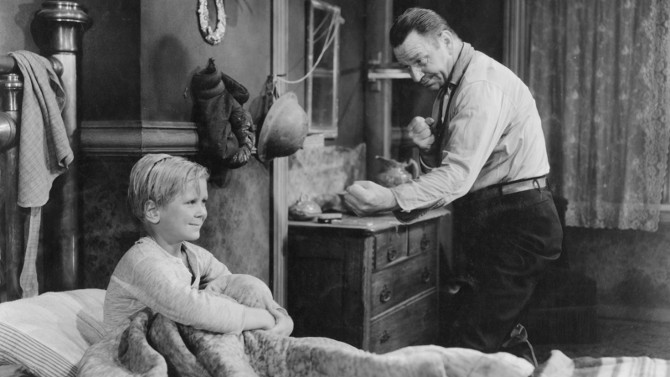
A Boy and His Champ
The ChampJune 16, 2017The story of a down-and-out boxer and his adorable son, 1931's The Champ, directed by King Vidor, is a tale of struggle and hardship as well as family, love and hope. The former champ, Andy Purcell (Wallace Beery – he won the Academy Award for Best Actor in a Leading Role in a rare tie with Frederic March), is for all intents and purposes, washed up. Though he is in the midst of training for his next bout, he continuously self-sabotages by turning to alcohol and then follows it up by playing dice, tossing the little money he has left away. His only saving grace is his young son, Dink (Jackie Cooper, one of The Little Rascals of the early sound era who went on to play Perry White in the first three Superman movies starring Christopher Reeve) – a child well beyond his years. A combination of tiny tramp and wise adult, he cares for his father like no one else. Trying to steer him away from booze and focus his wayward vision, he has a middling effect. Though his pleas reach his father, they do not stay his hand for long. The story is, in many ways, told through Dink’s eyes. The son of The Champ is usually followed by his trusty sidekick Jonah (Jesse Scott) and a plethora of other impoverished youths.
-
Star Pick with John Stocker
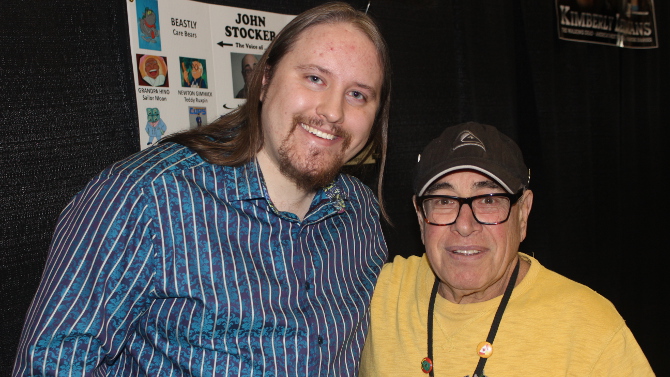 The VoiceThe GodfatherMay 26, 2017
The VoiceThe GodfatherMay 26, 2017Anyone who grew up in the 1980s to mid 90s will fondly recall the wide array of quality animated shows that graced the television screen. The Teenage Mutant Ninja Turtles, Rupert and Dragon Ball Z may come to mind, perhaps the only three shows that acclaimed voice actor, and today’s Star Pick John Stocker, did not do a voice on in this era of superlative children’s programming. Working since the 1960s, Stocker has been an integral part of the animated field for more than forty years. With one hundred and thirty seven acting credits alone, the sometimes voice director has an illustrious pedigree, to say the least. Beginning with perhaps his most acclaimed turn, henchman Mr. Beastly in The Care Bears, he gave the character a maniacal laugh for the ages, along with a rich, textured voice that brings to life the entertaining yet clumsy hijinks of the never successful villain who had a good heart deep down.

